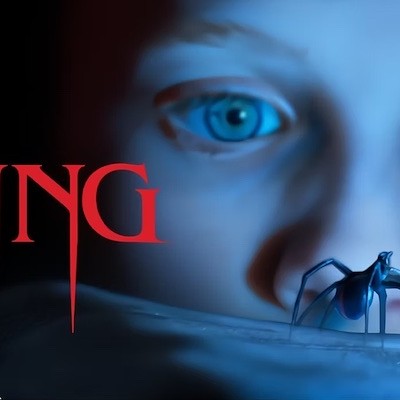When talking about his new book, Luka and the Fire of Life, Salman Rushdie has been bringing up a line from Paul Simon's song "St. Judy's Comet:" "If I can't sing my boy to sleep, it makes your famous daddy look so dumb." It's an odd choice for a marketing pitch, but it also ties Rushdie to a notion of celebrity fatherhood and maybe even constitutes some hipness for the parents who'll buy this book for their children.
Like Simon, Rushdie is trying to write for his son, and, like Simon, he comes across a little preoccupied with the idea that maybe he's not doing so hot. In its essence, Luka is the story of a young boy dealing with the mortality of his aged, storytelling father, but it's also about a father trying to relate to a child who appears to live in a foreign world filled with video games and nonstop media.
Luka isn't Rushdie's first foray into children's lit. In fact, it's a kind of sequel to his earlier Haroun and the Sea of Stories (written for his older son). The same family, the Khalifas, are at the center, but this go-round it's Luka, the younger boy, not Haroun, who gets sent out on an adventure into the World of Magic. Rashid Khalifa, the storytelling patriarch, the self-named "Shah of Blah," has fallen into an unwakeable sleep and his life is slowly draining away. Through a series of fortunate accidents, Luka finds his way into the world his father has spent so much time describing to him in bedtime stories, and he soon learns that only the Fire of Life, the most dangerous object to try to steal from this realm, will restore Rashid to his normal self.
As with typical children's books, the stakes aren't high: We know Luka will succeed, nobody "good" will die, and a lesson will be learned. The deeper Luka journeys into the World of Magic, the more densely populated it becomes with figures and animals from every culture imaginable. The vast field of myths and heroes that Rushdie is drawing from is not only a nice way of introducing children to new ideas, but also of showing them the common bonds between civilizations, from past to present, as well as the idiosyncrasies that make them interesting and unique.
The novel also presents a (somewhat) realistic model of how children can use their own perceived handicaps to view problems in different ways and find their own solutions. Luka's accepting of his left-handedness, which often makes him clumsy in real life and keeps him from being able to do things others can, becomes the key to reaching the end of the journey. This is one of the culminating lessons of the book, the other being that power only comes from the agreement of the people who support it, and it can be taken away--people can decide to be free for themselves.
The book is lightly peppered with mature language; you'll find "shit" and "bitch" in certain places, as well as tongue-in-cheek jokes about the nudity of some of the gods Luka encounters. We're not the censorship police, but parents who might be fine with their kids watching PG-13 comedies probably don't expect the same language to come up in fantasy novels, and for that, Rushdie's language seems more an attempt to come across as a non-uptight parent -- to be cool -- than to add anything to the story.
And then there's Rushdie's attempts to relate to kids raised on videogames. The World of Magic is divided into "levels," and each has a "save point," and Luka's sight is suddenly aided by a Terminator-like counter that tells him how many "lives" he has left.
Even if Luka and the Fire of Life isn't an instant children's classic, it's better-written than the large majority of similar fantasy novels. Given how quickly kids plow through these types of adventures and how quickly new ones are published, it's a welcome addition to the otherwise highly commercially-minded genre (we're hoping Rushdie didn't actually do this for the money). It's often hard to get young readers to transfer their zeal for finding out what happens at wizard school and move on to books that make up the literary canon. Getting Rushdie's name out early on could be an invaluable asset, even if it's another decade or two before they crack open a copy of The Satanic Verses or Midnight's Children.
We're excited to see what Rushdie has to say himself about Luka and his life when he comes to Houston for the Inprint Margarett Root Brown Reading Series on December 3.





